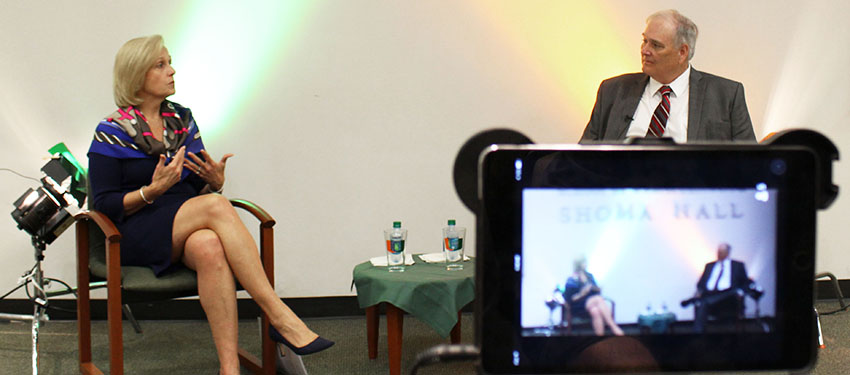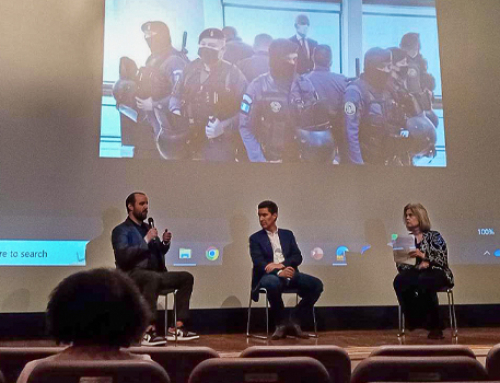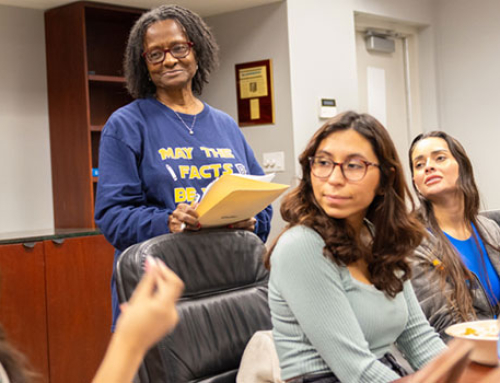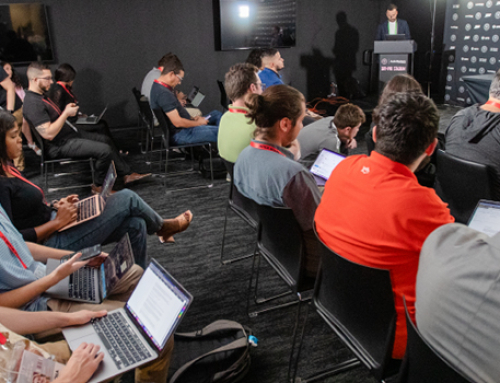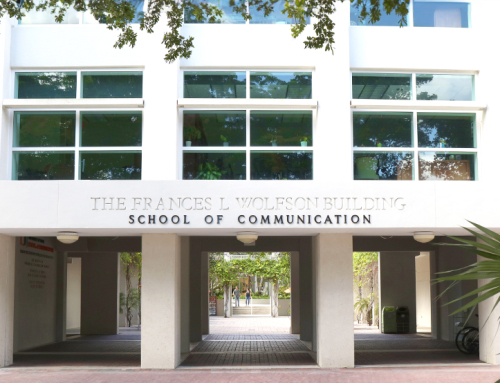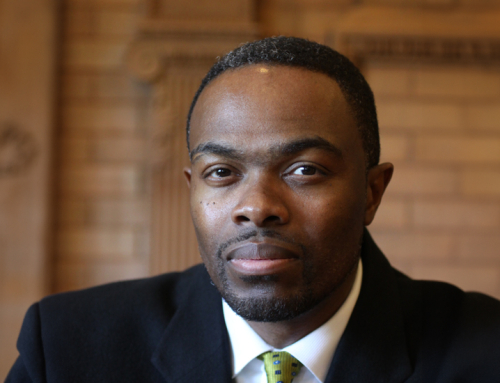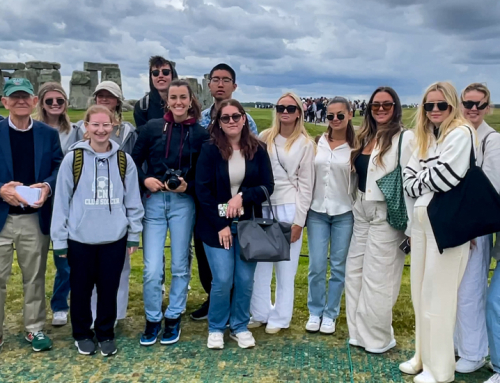As part of its Annual Conversation Series, the School of Communication welcomed President and CEO of PBS Paula Kerger on November 2. Kerger is responsible for bringing to public television viewers Downton Abbey, the highest rated drama in PBS history, new primetime science and arts series, and a number of children’s programs. Shoma Hall was completely packed with students and faculty eager to hear what she had to say on the future of television and media in general.
Kerger started out by mentioning that she had prepared a speech, but she wasn’t going to give it because she thought it would be more interesting to talk about what is going on in media today. She touched upon how the media landscape has changed tremendously since she started her position at PBS in 2006.
“The way that we connect to each other, the way that we talk to each other has shifted in ways that I never could have imagined when I came to this job,” Kerger said.
Kerger explained that there are now so many different platforms on which to watch television and each comes with a different experience. Watching television in a living room with family and friends is different from watching television on a tablet in between classes.
“The platforms themselves have the potential of shaping content,” Kerger said.
PBS has adjusted to the different viewing habits of the population by putting content on YouTube. The first video they did was called “Garden of Your Mind,” a remix of Mr. Rogers’ images and music. It went viral immediately. According to Kerger, PBS now has about 60 channels on YouTube.
Kerger said that PBS was willing to look at new ways of doing business by being open to try new things.
“I think the successful organizations are the ones that are willing to take risks, that are willing to try things, that are willing to fail,” Kerger said.
Kerger told the students that by the time they are out in the marketplace trying to figure out which career path to take, the world will have shifted even more.
“The different ways that you will have to tell stories is just going to continue to evolve in I think really fascinating ways,” Kerger said.
She advised the students, once they make that career path choice, to not simply copy someone that they have already seen succeed.
“Use your own voice. You have one. It’s powerful,” Kerger said.
Later on, Kerger opened the floor to students, saying she was happy to talk about anything the students wanted from the field of journalism to the even wider field of media to media companies that are hiring.
Kerger advised one aspiring student to apply in small television markets when seeking first-time on-air talent opportunities.
“I encourage you to start in smaller markets because, then, I think you have the opportunity to do more and I think that’s how you get noticed,” Kerger said.
In terms of the future of PBS, Kerger said that they are experimenting with virtual reality and that Frontline has already done some content for it. Kerger noted how powerful virtual reality is for storytelling because it allows the audience to be immersed in a story.
“I think it’s going to be an interesting platform to see develop,” Kerger said. “I think there is something about the virtual reality experience that is really compelling.”
Kerger told the students a couple of things she said she wished someone would have told her when she was a student. One was to look for great mentors. The other was to be open to possibilities and realize that the communications world is going to shift a lot.
“I think this is really the most interesting time to be in the media and I would love to be sitting in your place right now because there are going to be a lot of opportunities,” Kerger said.
This event is the first time University of Miami School of Communication used Periscope to live stream. To view photos, please visit https://www.facebook.com/media/set/?set=a.10153776477803395.1073741854.44838868394&type=3.
